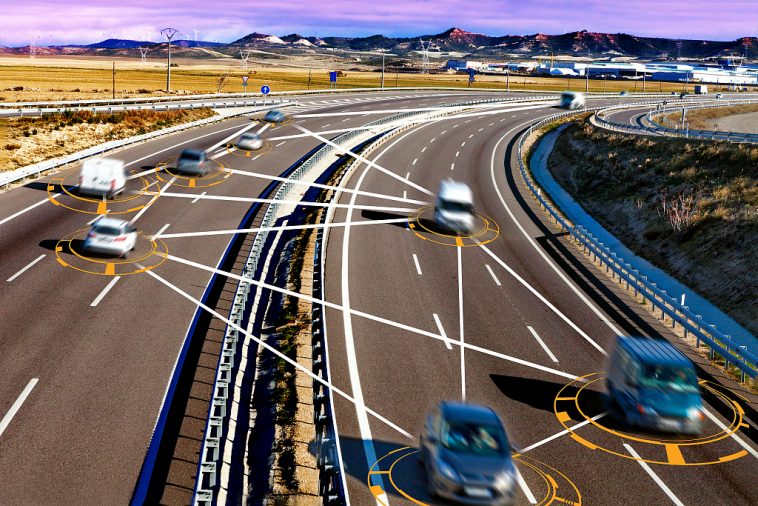, smart city technology, defined as an urban area that uses technology and sensors to collect data for resource management, may not sound that interesting to the average citizen. While the fundamental technologies behind smart cities such as artificial intelligence and the Internet of Things are being better understood, many may not realize how much smart city technology will impact our work and lifestyle in the years to come.
From more accessible and efficient services to lowering citizens’ overall carbon emissions, many smart city technologies today can reduce costs, improve safety, better protect the environment and improve our quality of life. Next, let’s talk about the new ways of working that will really improve urban areas, as well as the smart city technologies that are being developed.
How smart city technology is changing the way we live and work
1. Smart parking spaces
Smart parking spaces provide a viable solution to the parking management problem in urban areas where available parking spaces are scarce. This innovation will allow citizens to book a parking space through an app, reducing the time to find a parking space, minimising urban traffic, reducing our carbon emissions and saving fuel.
2. Automated order delivery
From e-commerce to food delivery to pharmaceuticals, the implementation of last-mile delivery will be more automated. With increasing pressure on labor resources and limited space in delivery vehicles, look for more forms of automated robots to fill the void.
3. Water saving technology
Optimizing water use with real-time weather data and IoT technology will become mainstream. Conserving water is critical to ensuring water supplies for future generations, and we should use technology to maximize water conservation.
4. Self-driving cars
Achieving fully autonomous self-driving cars will fundamentally change the way smart cities operate. With self-driving cars, smart cities will be able to automate every aspect of transportation, which will have a profound impact on access to food, medicine, shelter, and other necessities.
5. Alternative means of transportation
Infrastructure data powers our smart cities and modes of transportation. Today, people use alternative transportation such as electric cars and bicycles and benefit from the use of 4G, 5G and IoT sensors to better understand traffic patterns, trends and impacts through AI, shorten commute times, reduce wasteful idling and reduce overall climate impact.
6. Intelligent transportation system management
Transportation system technologies will create safer and more livable cities. Utilizing cloud-based software can reduce operational silos between transportation systems and emergency personnel, integrate centralized command centers, and allow for the implementation of smart sensing, which will allow for faster emergency response times.
7. Environmental Management
We cannot think of smart cities without thinking about smart environmental management, which depends on innovative climate and geospatial technologies driven by artificial intelligence and data analytics. They have the potential to improve our response to climate change and the overall environmental quality of smart cities.
8. Internet network
Living in modern times requires the Internet. The population of a smart city must stay connected as a whole. Buildings throughout the city form a series of connected router nodes and Internet exchange points. These systems are highly secure and decentralized, and can maintain communication in the event of failure of the wider internet infrastructure.
9.5G
5G deployments are rapidly unfolding and attracting the attention of leaders. 5G is not just a new wireless standard, it has the potential to transform future communications, powering the next generation of augmented and virtual reality and the metaverse, allowing us to have more A richer, more connected and more collaborative digital life.
10. Real Estate Technology
As we continue to transform cities into smart cities, property technology, especially remote property management, will play an integral role in improving the way we work and live. Digital property management systems lead to a better overall experience, which is key in the era of hybrid work as people spend more and more time at home. The technology will also increase efficiency in management.
11. Adaptive Architecture
Often when someone’s personal circumstances change, they have to move to a new apartment or house. What if we could just reconfigure and stay in the same physical space? This could mean adjusting walls to add a room to a growing home, or digital solutions to increase accessibility or the convenience of living and working, such as contactless elevator calls or robotic services.
12. Pollution and noise control technology
Today, innovative tools for pollution and noise control deserve special attention. With megacities starting to suffocate with smog, it is important that smart city technology sound the alarm and take steps to stabilize environmental conditions. To do this, cities will use automated sensor networks and data centers everywhere.
13. Blockchain-based services
Residents of smart cities can truly benefit from blockchain-based citizen services through service commitments and pricing. Citizens will request services, receive promised service levels and prices, such as parking, lodging, etc., and upon arrival at the venue or location, will receive the agreed services. Blockchain technology will be used to submit transactions to the ledger and use proof of reputation for continuous service evaluation.




GIPHY App Key not set. Please check settings